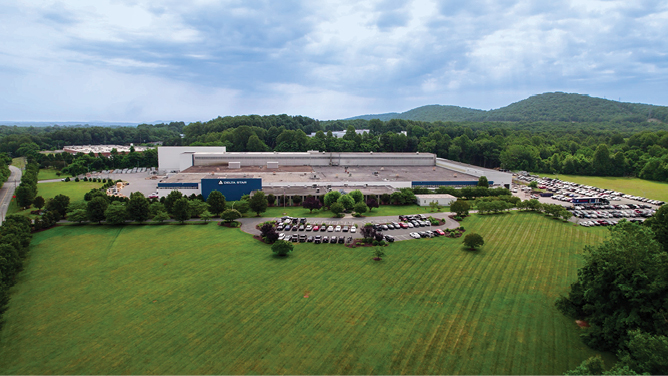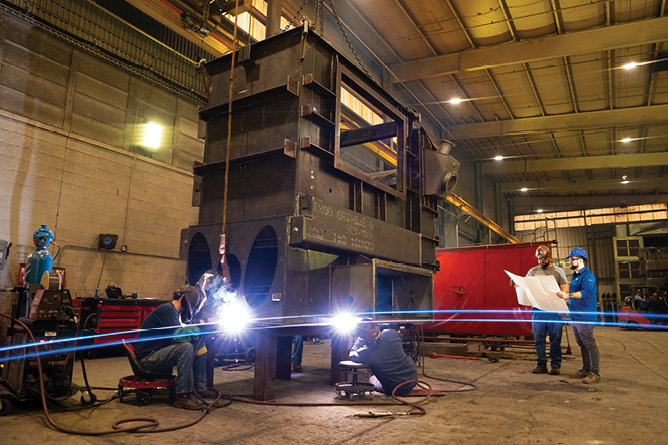When Delta Star announced on May 3, 2023, that it planned to invest $30 million to expand its headquarters and manufacturing operations in Lynchburg, Virginia, the news only confirmed what company leaders already knew: The firm’s partnership with local workforce development efforts is working.
The expansion means the maker of mobile power transformers and substations will need to hire 149 additional workers. These include welders, electricians, assembly workers, technical staff and administrative personnel. Myron Bell has no doubt the company will find them.
“The state of Virginia and the local area have done a phenomenal job in helping us get the “resources we need to grow,” says Bell, corporate engineering operations director for the 115-year-old company based in Lynchburg, the largest city in south central Virginia. “When it is time to hire people, we hire local, and we recruit people from outside. We hire graduates of regional schools such as Liberty University, Virginia Tech and University of Virginia.”
The Virginia Talent Accelerator Program recently conducted an employment needs analysis for Delta Star. “This helps us document, record and set up specific training programs for our employees,” says Bell. “Many of our jobs require on-the-job training. We also have a dedicated internal training staff and program.”
The expansion will add 80,000 square feet of manufacturing space and 14,000 square feet of office space on site in Lynchburg. The company also maintains production facilities in San Carlos, California, and Quebec, Canada. In recent years, Delta Star spent over $10 million to increase capacity at those two plants.
“We are the largest American-owned medium-voltage power transformer producer in the U.S.,” says Bell. “We are an ESOP organization, and we are approaching 400 employees in Lynchburg.”

“The state of Virginia and the local area have done a phenomenal job in helping us get the resources we need to grow.”
— Myron Bell, Corporate Engineering Operations Director, Delta Star Inc.
From Caps and Gowns to Jobs
With five liberal arts colleges and universities and a large community college, Lynchburg ranks as one of the biggest college towns in Virginia and the entire Mid-Atlantic region. Due to its plethora of young people, the community’s average age is just 29.
“The three main industries that we focus on, in terms of workforce development, are manufacturing, maintenance and repair; engineering and production; and healthcare,” says Christine Kennedy, chief operating officer and executive vice president of the Lynchburg Regional Business Alliance. “These are in-demand industries with a high workforce need. We need engineers with five-plus years of experience who can come in and hit the ground running. There is an urgency to find qualified, skilled and tenured manufacturing employees.”
Kennedy says legacy companies like BWXT, Framatome and Delta Star love Lynchburg because it is the best place on the Eastern Seaboard for the kind of work they do. “It is no accident that the governor of Virginia announced his new energy plan in Lynchburg. This is the home of the nuclear energy industry and power plant producers like Delta Star,” she says.
CTE Academy Teaches the Trades
Delta Star began in Chicago in 1908 and opened the doors to its factory in Lynchburg in 1961. Today, the firm occupies 300,000 square feet in the Hill City as it makes room for additional production capacity.
A contributor to the company’s growth is Central Virginia Community College in Lynchburg. CVCC has 1,013 students enrolled in its Career Technical Education (CTE) Academy, which teaches skills like welding, pipefitting, electrical work and other trades.
“The CTE Academy, when we started it, aligned with the G3 initiative of former Virginia Gov. Ralph Northam – which stood for Get a Skill, Get a Job, Get Ahead,” says Dr. John Capps, president of CVCC. “The regional CTE Academy is our signature workforce training program.”

